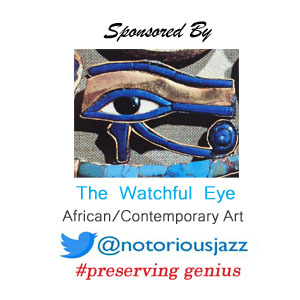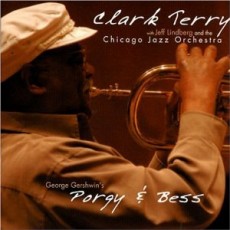
Daily Dose Of Jazz…
Clark Terry was born on December 14, 1920 in St. Louis, Missouri. After high school he started his professional career in the early 40s playing in local clubs, and then served as a bandsman in the U.S. Navy during World War II. He influenced both Quincy Jones and Miles Davis, teaching the later while in St. Louis.
Terry’s years with Basie and Ellington in the late 1940s and 1950s established him as a world-class jazz artist, blending the St. Louis tone with contemporary styles. After leaving Ellington, Clark’s international recognition soared when he became NBC’s first African-American staff musician. He a ten-year member of The Tonight Show band where his unique “mumbling” scat singing became famous when he scored a hit with “Mumbles.”
Terry continued to play with musicians such as J. J. Johnson and Oscar Peterson, and led a popular group with Bob Brookmeyer in the early 1960s. In the 1970s he concentrated on the flugelhorn, performed studio work and teaching at jazz workshops, toured regularly in the 1980s with small groups and performed as the leader of his Big B-A-D Band.
At the behest of Billy Taylor, early in his career he and Milt Hinton bought instruments and gave instruction to young hopefuls and the idea was planted the seed that became Jazz Mobile in Harlem. He toured with the Newport Jazz All Stars and Jazz at the Philharmonic, recorded for the Red Hot + Rhapsody and Red Hot + Indigo albums, composed more than two hundred songs, performed for seven U.S. Presidents, has been both leader and sideman on more than three hundred albums performing with Clifford Brown, Gary Burton, Charlie Byrd, Tadd Dameron, Eddie “Lockjaw” Davis, Lionel Hampton, Paul Gonsalves and Milt Jackson among others, recorded with symphonies and orchestras and established the Clark Terry Archive at William Paterson University.
Swing and bop trumpeter, pioneer of the flugelhorn and educator Clark Terry has received over 250 awards, medals and honors including a NEA Jazz Masters Award, has received a Grammy Lifetime Achievement Award, 16 honorary degrees, a knighthood, keys to several cities, the French Order of Arts and Letters and over the course of a seventy year career is the most recorded trumpet player of all time appearing on more than 900 known recording sessions.
Trumpeter, and flugelhorn player Clark Terry passed away from complications from advanced diabetes on February 21, 2015 at the age f 94 in Pine Bluffs, Arkansas.
More Posts: flugelhorn,trumpet
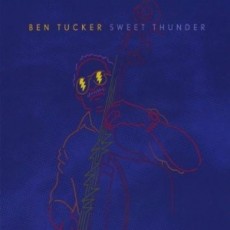
Daily Dose Of Jazz…
Ben Tucker was born on December 13, 1930 in Nashville, Tennessee. By age twelve he began on trumpet and later on the bass, quickly making a name around town. In high school he taught himself to play the tuba and at Tennessee State learned the fundamentals of bass violin on his own. Following a stint in the Air Force, he settled in California playing with Art Pepper and Shorty Rogers, among others and the legendary “Jazz of Two Cities”.
By the early 1960’s, he was regularly performing and recording with Herbie Mann, Billy Taylor, Dexter Gordon, Buddy Rich, Quincy Jones, Marian McPartland, and Mel Torme. He would go on to play with Gerry Mulligan, Peggy Lee, Tommy Flanagan, Ellis Marsalis, Cy Coleman and Red Norvo among others.
A prodigious composer of over 300 titles, many are jazz standards like “Comin’ Home Baby”, “Devilette”, “The Message,” “ Right Here, Right Now” and his most famous discovery and publishing being the Bobby Hebb tune “Sunny”.
Bassist Ben Tucker was named as one of the world’s Top Ten Bass Players in 1959 by Metronome Magazine, was appointed to the Advisory Committee of the Kennedy Center for the Arts, formed his own production company, bought a radio station, received a Clio, produced “Multiplication Rock”, the musical education tool, and created the Telfair Jazz Society and opened and operated Hard-Hearted Hannah’s, a Savannah jazz club.
Bassist Ben Tucker passed away on on June 4, 2013 of a traffic collision on Hutchinson Island, Georgia.
More Posts: bass
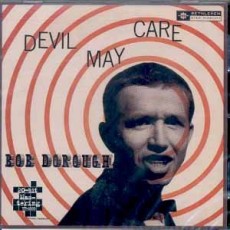
Daily Dose Of Jazz…
Bob Dorough, born December 12, 1923 in Cherry Hill, Arkansas, he grew up in Texas. He learned to play piano and would play in an Army band during World War II. After discharge he attended North Texas State University, majoring in composition and minored in piano.
Around 1950 Bob moved to New York City and was playing piano in a Times square tap studio where he was introduced to the boxer sugar Ray Robinson, who was putting together a song and dance revue. He was hired, became the show’s music director and toured the U.S. and Europe. Leaving the revue in Paris in 1954, he recorded with singer Blossom Dearie during that time. Returning to the U.S. and moving to Los Angeles, he played various gigs, including a job between sets by comedian Lenny Bruce. Dorough released his first album, Devil May Care, in 1956 that contained a version of Charlie Parker’s “Yardbird Suite”.
Dorough penned the lyrics for Miles Davis on the Christmas song “Blue Xmas” and a few years later recorded “Nothing Like You” that is on the Sorcerer album. He worked with Allen Ginsberg, and his adventurous style influenced Mose Allison among other singers. He is perhaps best known as a voice and primary composer of many of the songs used in “Schoolhouse Rock!” during the Seventies and Eighties.
The cool jazz pianist and composer he has penned with bassist Ben Tucker the tune “Comin’ Home Baby” that earned Mel Torme two Grammy nominations and a Top 40 hit. A vocalese singer, he has released 28 vocal jazz albums as a leader, four singles and 17 as a sideman and/or guest over the last 50 years. Bob Dorough received an honorary degree from East Stroudsburg University of Pennsylvania with a Doctor of Fine Arts, was named Artist of the Year in 2002 by the Pennsylvania Governor’s Awards for the Arts. He garnered a Grammy nomination for Best Recording for Children and was inducted into the Arkansas Jazz Hall of Fame prior to passing away on April 23, 2018 in Mount Bethel, Pennsylvania at age 94.

Daily Dose Of Jazz…
Jack Purvis was born John Purvis on December 11, 1906 in Kokomo, Indiana. After his mother’s death in 1912 his behavior became uncontrollable, and, as a result of many acts of petty larceny that would remain a part of his adult life, he was sent to a reform school. While there, he discovered that he had an uncanny musical ability, and soon became proficient enough to play both the trombone and trumpet professionally. This also enabled him to leave the reformatory and continue his high school education, while he was playing paying gigs on the side.
One of the earliest jobs he had as a musician was with a band led by the Royal Canadian Mounted Police and not long afterward he was working with the Hal Denman dance band. After high school he played with the Original Kentucky Night Hawks, then Bud Rice, Whitey Kaufman’s Original Pennsylvanians, Arnold Johnson’s orchestra, and then traveled to France with the George Carhart band. The balance of the decade he spent recording as a leader and sideman with several bands.
In 1930, Purvis led a couple of racially mixed recording sessions including the likes of J.C. Higginbotham and Adrian Rollini. He would work with the Dorsey Brothers, Fletcher Henderson, Fred Waring, Charlie Barnet and the New Orleans Symphony Orchestra. His move to California had him in radio broadcasting, working at Warner Studios and with the George Stoll Orchestra.
By the mid Thirties he was back in New York playing with Frank Froeba’s Swing Band but this engagement and subsequent recordings were the end of his recording career. He disappeared from the music world, ultimately being sent to jail in Texas for robbery. After his second conviction and release Purvis worked as a chef, aviator, carpenter, radio repairman and even a mercenary in South America.
One account of trumpeter Jack Purvis’ death is that he gassed himself in San Francisco, California on March 30, 1962. However, his death certificate indicates the cause of death to be fatty degeneration of the liver. He was best known as the composer of Dismal Dan and Down Georgia Way, also played trombone, harp and a number of other instruments, and was one of the earliest trumpeters to incorporate the innovations pioneered by Louis Armstrong.
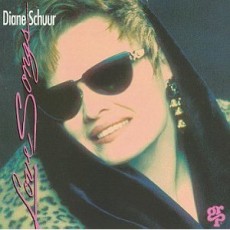
Daily Dose Of Jazz…
Diane Schuur was born December 10, 1953 in Tacoma, Washington and was blinded at birth due to retinopathy of prematurity. Encouraged by both her parents to sing, she started when she was a two-and-a-half and by age nine was getting professional gigs. Early heroines were Sarah Vaughan and Dinah Washington but while attending Washington State School for the Blind she began performing original material and by sixteen had revealed a distinctive voice and began performing.
Diane’s big break came when Stan Getz heard her at the 1979 Monterey Jazz Festival and became a positive influence. In 1982 he invited her to join him at a White House performance and Nancy Reagan invited her back to perform with Count Basie. She began recording in 1984 on her nickname titled album “Deedles” with Getz performing and on her next two albums.
Pianist and vocalist Diane Schuur has performed with Quincy Jones, Stan Getz, B.B. King, Dizzy Gillespie, Maynard Ferguson, Ray Charles, Joe Williams, Barry Manilow, Alan Broadbent, Harvey mason, Peter Erskine and Stevie Wonder among others. She has been nominated five times and won two Grammy Awards, and her catalogue of recordings is too extensive to enumerate. Her staying power is evident in her continual performance, touring and recording of both studio and live performances.





